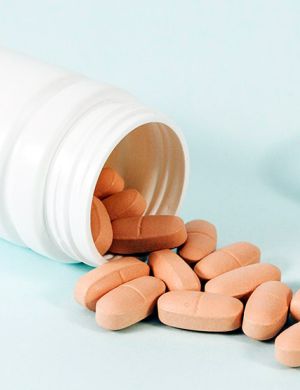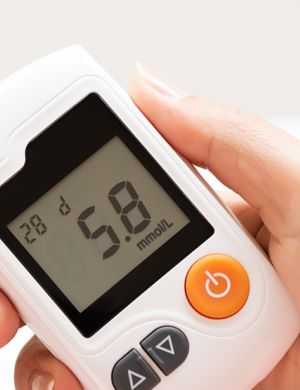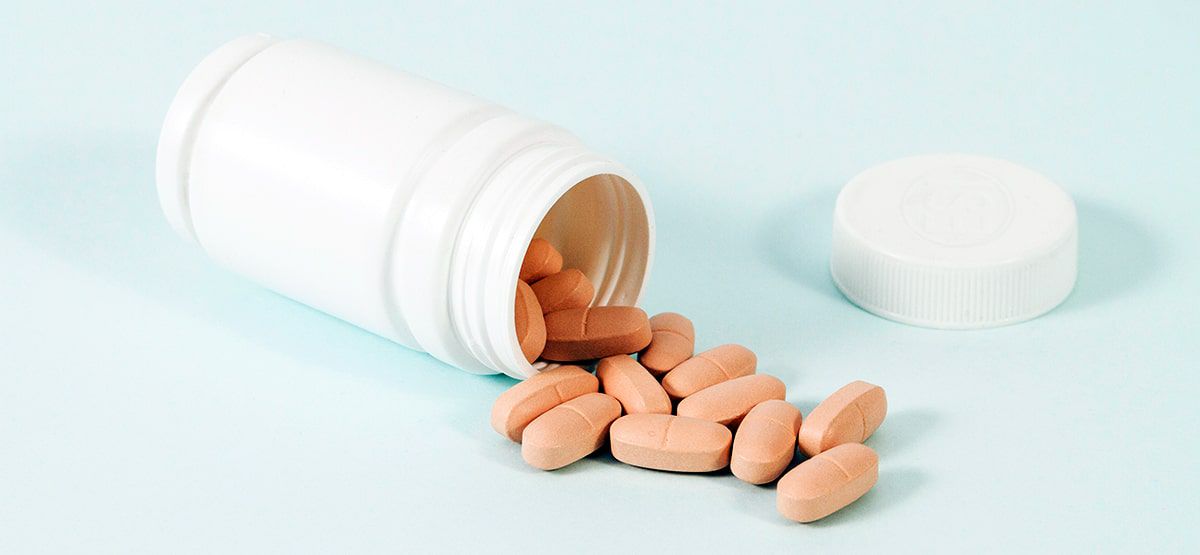
Pharma – Asia, S America, MENA, ROW Regulatory News – Aug 2025
ALGERIA
Suspension and Withdrawal of HUP.P.PHARMA Products
The National Agency for Pharmaceutical Products has announced the immediate suspension and withdrawal of all pharmaceutical products manufactured by SARL HUP.P.PHARMA. This decision follows the company’s temporary closure and a ministerial directive citing serious non-compliance with Good Manufacturing Practices (GMP), particularly in quality control and batch release procedures. All affected products, produced at the Le-Palma industrial zone in Constantine, are to be removed from circulation to safeguard public health.
ARGENTINA
ANMAT Prohibits Medical Products from Biovand Group
The National Administration of Drugs, Food and Medical Technology (ANMAT) has issued Provision 5344/25, banning the use, marketing, and distribution of all products distributed or sold by Biovand Group, operated by Cossio Maximo Sebastian (CUIT 20-31915330-7), throughout Argentina. This decision was made due to the absence of proper health authorizations for the products in question. As their legitimacy could not be verified, ANMAT determined that these items may not meet the minimum standards of quality, safety, and efficacy required for medical products posing a potential health risk to users.
AUSTRALIA
Australia Updates GMP Standards for Medicines, APIs & Sunscreens
Australia will implement the PIC/S Guide to GMP – PE009-17 (25 August 2023) starting 1 September 2025, replacing the current 2022 version for the manufacture of medicines, APIs, and sunscreens. The update focuses on Annex 1, which introduces revised requirements for sterile medicinal products. A phased compliance approach will support manufacturers in meeting new standards, with inspectors applying the updated guide during on-site inspections. Industry stakeholders are encouraged to review the changes and prepare accordingly.
Public Consultation Opens on GMP Guideline Updates
Australia’s Therapeutic Goods Administration (TGA) has announced a public consultation on proposed updates to the PIC/S Guide to Good Manufacturing Practice (GMP) for Medicinal Products. These revisions reflect the growing influence of digital technologies and artificial intelligence in pharmaceutical manufacturing. Key changes include a revised Chapter 4 on documentation, an updated Annex 11 on computerized systems, and the introduction of a new Annex 22 focused on AI. Developed jointly by PIC/S and the European Medicines Agency Inspectors Working Group, the updates aim to modernize compliance standards under the Therapeutic Goods Act 1989. Stakeholders, especially Australian manufacturers, are encouraged to submit feedback through their representative organizations.
GMP Clearance Dashboard Update
On 18 August 2025, Australia’s Therapeutic Goods Administration (TGA) updated the GMP Clearance Sponsor Information Dashboard (SID) to improve transparency and track progress in reducing the backlog of conformity verification (CV) applications. The enhanced dashboard now includes trend data across all CV streams over the past 12 months, visual representations of application status and queues, and expanded processing timeframes beyond the 90th percentile. It also features a six-month rolling snapshot of application quality, highlighting incomplete submissions and requests for additional information. Data will be refreshed every 4 to 6 weeks to ensure stakeholders have access to current and actionable insights.
BRAZIL
Anvisa Updates GMP Certificate Validity Rules
On August 25, 2025, Anvisa announced the renewal of Good Manufacturing Practices Certificates (CBPFs) for health products, introducing a change in how certificate validity is calculated. Under Resolutions 3.208, 3.209, and 3.213, the renewed certificate’s validity now begins on the expiration date of the current certificate, rather than the date of renewal publication. The new expiration dates are listed in the annexes of each resolution. Renewed certificates will appear in Anvisa’s Consultation Portal only from the first day of their new validity. The total validity period two or four years remains unchanged.
Anvisa Reinforces Use of VigiMed for Reporting Adverse Drug Events
On August 27, 2025, Anvisa emphasized that the VigiMed system is the sole official platform for reporting suspected adverse events related to medications, including compounded drugs and GLP-1 agonists like semaglutide and liraglutide. These medications, used for diabetes and obesity, carry risks such as pancreatitis and kidney issues, especially in patients with gastrointestinal conditions. Reports can be submitted by healthcare professionals or individuals—even if the medication’s role is only suspected and must include details like whether the product is compounded. Anvisa does not accept data from private reporting systems and relies on VigiMed to monitor drug safety and guide regulatory decisions.
Anvisa Clarifies New Rules for Clinical Analysis Services (RDC 978/2025)
Anvisa released a Questions & Answers document to guide laboratories, clinics, pharmacies, and health agencies on applying RDC 978/2025, which governs clinical analysis services like blood and urine tests. The regulation, effective since June 10, 2025, replaces RDC 786/2023 and includes updates from RDC 986, published on August 15. The Q&A was developed with input from public and private sector stakeholders to address common concerns and ensure proper implementation. This material is educational and advisory, and will be updated as new questions or regulatory changes arise.
Anvisa Updates Submission Protocol for Notified Medication Certificates
Anvisa has implemented a new process for requesting the Certificate of Regularization for Notified Medication and its export version. These declaratory documents, which confirm information about medications notified in Brazil, must now be requested exclusively through electronic petitioning replacing the previous email-based system. This change aligns with Anvisa’s broader administrative procedures, such as those used for Drug Registration Certificates. Petition subjects 12392 (for export) and 12393 (for domestic use) should be used when submitting requests. Importantly, the deadlines and requirements for issuing these certificates remain unchanged.
Anvisa Alert on PDE5 Inhibitors
Medications containing sildenafil, tadalafil, vardenafil, udenafil, and lodenafil used to treat erectile dysfunction are prescription-only and regulated by Anvisa. Improper use, especially for aesthetic or recreational purposes (e.g., in gyms or with illicit substances), poses serious health risks including heart attack, stroke, hypotension, vision/hearing loss, and psychological dependence. Illegal formulations like tadalafil gummies (e.g., Metbala) have been banned due to lack of authorization and safety concerns. Anvisa urges the public to report adverse events via VigiMed and irregular products or promotions via Notivisa.
CHILE
Market Withdrawal of Levetiracetam Infusion Solution
The Chilean Public Health Institute (ISP) has issued a pharmaceutical alert instructing the market withdrawal of Levetiracetam Concentrated Solution for Infusion 500 mg/5 mL, manufactured by Maiva Pharma Private Limited in India and registered under Vitafarma S.A. in Chile. The action was taken following the detection of a foreign object inside a sealed ampoule from batch E132A004, with an expiration date of March 2027. As a precautionary measure to protect patient safety, the product classified as an antiepileptic is being removed from circulation. Healthcare providers and distributors are advised to cease use and distribution of the affected batch immediately.
CHINA
NMPA and Macao SAR Deepen Drug Regulation Cooperation
Li Li, Commissioner of the National Medical Products Administration (NMPA), welcomed O Lam, Secretary for Social Affairs and Culture of the Macao Special Administrative Region (SAR), and her delegation in Beijing. The meeting focused on reviewing the implementation of the regulatory cooperation agreement covering drugs, medical devices, and cosmetics, and exploring new avenues to enhance Macao’s pharmaceutical regulatory framework.
EGYPT
Egyptian Drug Authority Launches Targeted Oncology Drugs Section
On August 31, 2025, the Egyptian Drug Authority (EDA) unveiled a new section in the Egyptian Drug Registry dedicated to targeted oncology drugs. This initiative aims to support healthcare professionals with precise, evidence-based information to promote rational drug use and improve patient outcomes. The registry provides comprehensive data on anticancer therapies, including pharmacological classifications, indications, dosage adjustments, administration methods, interactions, contraindications, and safety guidelines. By focusing on precision medicine, the EDA reinforces its commitment to enhancing pharmaceutical care, optimizing resources, and aligning with global standards.
EDA Requests Email Updates for Pricing Policy Applications
To improve coordination with pharmaceutical companies, the Egyptian Drug Authority (EDA) has requested all applicants to update their official email addresses and re-register company names as listed in the EDA database. Companies must complete this update within 10 days of the announcement to ensure smooth communication with the General Administration of Pricing Policies.
EDA Reviews Progress on Expired Medicines Withdrawal Initiative
On August 27, 2025, the Egyptian Drug Authority (EDA) met with distribution company leaders to assess the implementation of its initiative to withdraw expired medications from pharmacies. The meeting reinforced EDA’s commitment to public health and pharmaceutical market stability through safe disposal practices and ongoing regulatory oversight. Distribution representatives pledged full cooperation to ensure the initiative’s success and protect citizens’ well-being.
Egypt–Namibia Strengthen Pharmaceutical Regulatory Ties
The Egyptian Drug Authority met with Namibia’s ambassador to strengthen pharmaceutical cooperation. Discussions focused on regulatory expertise, technical support, and capacity building. EDA expressed readiness to assist with training, consultations, and system development. Namibia praised EDA’s leadership and expressed interest in deeper collaboration. Both sides committed to sustained coordination and improving medicine quality.
INDIA
India Updates Drug Labeling Rules to Enhance Transparency
The Ministry of Health and Family Welfare has notified the Drugs (2nd Amendment) Rules, 2025, introducing key changes to Rule 96(7) of the Drugs Rules, 1945. Effective from March 1, 2026, the amendment mandates the inclusion of qualitative details of excipients on drug labels, improving transparency for consumers and healthcare professionals. The update also refines existing labeling language for clarity. Finalized after public consultation and review by the Drugs Technical Advisory Board, this move reflects the government’s commitment to strengthening pharmaceutical regulation and patient safety.
New Compounding Authority Appointed Under Drugs and Cosmetics Rules
The Ministry of Health and Family Welfare has issued a notification appointing the Additional Director General of Health Services responsible for matters related to the Central Drugs Standard Control Organization (CDSCO) as the compounding authority under the Drugs and Cosmetics (Compounding of Offences) Rules, 2025. This authority will now exercise powers on behalf of the Central Government for handling offences and related measures under the said rules. The notification came into effect upon its publication in the Official Gazette on August 1, 2025.
Draft Amendment to New Drugs and Clinical Trials Rules Proposed
The Ministry of Health and Family Welfare has proposed amendments to the New Drugs and Clinical Trials Rules, 2019, aimed at simplifying the approval process for bioavailability and bioequivalence (BA/BE) studies conducted for export purposes. As per the draft notification issued on August 27, 2025, certain oral drugs already approved in India or select countries like the USA, EU, Japan, Australia, Canada, and the UK may undergo BA/BE studies in healthy adult volunteers through an online notification process, rather than full prior approval. The proposal includes conditions such as ethics committee clearance, a maximum sample size of 48, and fee exemptions for government-funded institutions. Stakeholders have 30 days from the Gazette’s public release to submit feedback, marking a significant step toward regulatory efficiency and global alignment.
Draft Rules Aim to Streamline Drug Manufacturing for Preclinical Testing
The Ministry of Health and Family Welfare has proposed amendments to the New Drugs and Clinical Trials Rules, 2019, aimed at expediting regulatory processes for drug manufacturing and testing. As per the draft notification issued on August 27, 2025, manufacturers may now initiate production of certain new or investigational drugs for analytical and preclinical testing through an online notification system, bypassing the need for prior approval except for sensitive categories like sex hormones, cytotoxic agents, biologics with live microorganisms, and narcotic or psychotropic substances. Additionally, the review timelines for various regulatory applications have been reduced from ninety to forty-five working days, signaling a push toward faster and more efficient oversight. Stakeholders have thirty days from the Gazette’s public release to submit feedback to the Ministry.
CDSCO Launches Dedicated Link for NSQ Drug Alerts
The Central Drugs Standard Control Organization (CDSCO) has announced a new initiative to improve access to Not of Standard Quality (NSQ) drug alerts. As of August 28, 2025, stakeholders can now view monthly NSQ alerts through a dedicated and searchable link on the CDSCO website. The updated portal provides detailed information including product names, manufacturing details, and NSQ results, enhancing transparency and regulatory oversight.
INDONESIA
BPOM Establishes New Regulations about Good Drug Distribution Standards
On August 8, 2025, the Indonesian Food and Drug Authority (BPOM), led by Head Taruna Ikrar, officially announced the issuance of BPOM Regulation Number 20 of 2025 (PerBPOM 20/2025) concerning Good Drug Distribution Practices (CDOB). This updated regulation replaces previous guidelines and aligns with recent health laws and international standards, aiming to strengthen drug distribution oversight across Indonesia. Key updates include expanded coverage to electronic distribution systems, stricter provisions for drugs with abuse potential, and enhanced cold chain product handling. Designed to ensure drug safety, efficacy, and quality throughout the supply chain, the regulation also supports Indonesia’s pharmaceutical competitiveness on the global stage.
JAPAN
PMDA Revises Safety Guidelines for Elevidys Ahead of Market Launch
On August 28, 2025, Japan’s PMDA issued safety updates for Elevidys (delandistrogene moxeparvovec), a gene therapy for Duchenne muscular dystrophy. Revisions include stronger precautions for liver monitoring and infection risks linked to corticosteroid use, following overseas reports of acute hepatic failure and two related deaths. No such cases have been reported in Japan.
Implementation of PDG Harmonized Texts into Japanese Pharmacopoeia (Monographs)
The Pharmaceuticals and Medical Devices Agency (PMDA) continues to integrate harmonized monographs developed by the Pharmacopoeial Discussion Group (PDG) into the Japanese Pharmacopoeia (JP). These harmonized texts accompanied by Sign-off Cover Sheets detailing harmonized and non-harmonized attributes, local requirements, and signatures from the three participating pharmacopoeias are now published in full following sign-offs dated December 22, 2020.
PMDA Evaluates Safety Signals for Multiple Drugs
The Pharmaceuticals and Medical Devices Agency (PMDA) of Japan, in collaboration with the Ministry of Health, Labour and Welfare (MHLW), has released an update on drug safety evaluations as of August 8, 2025. This includes ongoing reviews of adverse reactions such as ANCA-associated vasculitis linked to mesalazine and salazosulfapyridine, intestinal angioedema associated with various ACE inhibitors and ARBs, and autoimmune hepatitis potentially caused by adalimumab. Other concerns include acute generalized exanthematous pustulosis from meropenem hydrate and tumor lysis syndrome linked to nivolumab and ipilimumab. These evaluations may lead to revisions in drug precautions, but patients are advised not to alter their medication without consulting healthcare professionals.
JORDON
SFDA and WHO Collaborate to Advance Regulatory Maturity
In a strategic move to elevate regulatory standards, The involved entities convened a high-level meeting to discuss joint priorities aimed at achieving the highest levels of regulatory maturity. Led by SFDA Director Professor Rana Obeidat and WHO Representative Dr. Iman Al-Shanqiti, the dialogue focused on accelerating the institution’s accreditation as a global reference authority through the WHO Benchmarking Programme. The meeting underscored the importance of aligning with international best practices to strengthen national drug security, boost pharmaceutical exports, and support economic modernization. Both parties reaffirmed their commitment to coordinated efforts and timely execution of shared goals.
MALAYSIA
NPRA Issues Urgent Recall of Traditional Product Containing Excessive Mercury
Malaysia’s National Pharmaceutical Regulatory Agency (NPRA) announced the immediate recall and deregistration of the traditional product Chang-Sze-Long Badu Gao (MAL13095093T) after it was found to contain mercury levels exceeding the permissible limit of 0.5ppm. Used externally for relieving swelling and mild pain, the product poses serious health risks including kidney damage, neurological harm, and skin disorders. The Ministry of Health urges the public to discontinue use immediately and report any adverse effects. Sellers and distributors are warned that continued sale of the product is a punishable offense under the Control of Drugs and Cosmetics Regulations 1984.
Malaysia’s NPRA Updates GLP-Compliant Facility List for 2025
The National Pharmaceutical Regulatory Agency (NPRA) has released its updated list of Good Laboratory Practice (GLP) compliant test facilities for 2025, highlighting seven certified institutions across Malaysia. These facilities, including SIRIM Berhad’s Energy & Environmental Centre and Info Kinetics Sdn Bhd in Penang, are recognized for their expertise in pharmaceuticals, cosmetics, veterinary drugs, food additives, and medical device testing. Each facility undergoes periodic inspections and CAPA evaluations to ensure continued compliance. The list reflects Malaysia’s commitment to maintaining high standards in non-clinical safety testing and regulatory transparency.
NPRA Issues Directive for Hydroxychloroquine Product Label Updates
On August 18, 2025, Malaysia’s National Pharmaceutical Regulatory Agency (NPRA) released Directive No. 17/2025, requiring all product registration holders to update packaging inserts and consumer leaflets (RiMUP) for hydroxychloroquine-containing products. The directive mandates the inclusion of new safety warnings related to congenital malformations in exposed pregnancies, drug-induced phospholipidosis, and worsening of myasthenia gravis symptoms. These updates, based on recommendations from MADRAC and endorsed by the Drug Control Authority, must be implemented by September 1, 2025 for new applications and by March 1, 2026 for existing registered products.
NIGERIA
Nigeria Retains WHO ML3 Status
In a major win for Nigeria’s healthcare system, NAFDAC and the Pharmacists Council of Nigeria (PCN) have officially retained the prestigious WHO Maturity Level 3 (ML3) status for the regulation of medicines and vaccines. This reaffirmation, effective June 30, 2025, follows a rigorous re-benchmarking audit and marks Nigeria as the first African nation to sustain ML3 recognition. The achievement strengthens global confidence in NAFDAC-approved products, opens doors for international trade, and signals a new era of regulatory leadership across the continent. With enhanced frameworks for bioequivalence, syringe prequalification, and enforcement in open drug markets, Nigeria is setting a high bar for pharmaceutical oversight and public health advancement.
PERU
MINSA Adds New Oncology Drugs to Essential List
The Ministry of Health has approved a new Complementary List of Medicines for the treatment of oncological diseases, now officially part of Peru’s National Unified List of Essential Medicines (PNUME). This strategic update is designed to enhance access to specialized, effective, and safe cancer therapies across the country’s healthcare system. Developed by the General Directorate of Medicines, Supplies, and Drugs (DIGEMID), the list targets priority health needs and supports the rational use of advanced pharmaceutical technologies. It also outlines the types of health facilities eligible to prescribe these medicines, ensuring proper oversight and clinical safety.
NAFDAC Recall Alert – Amoxivue 500mg Capsules
On August 6, 2025, NAFDAC issued a public alert announcing the recall of Amoxivue (Amoxicillin) 500mg capsules, Batch No. 322584, manufactured by Sparsh Bio-Tech Pvt. Ltd. The recall follows laboratory analysis revealing significantly low Active Pharmaceutical Ingredient (API) content just 26.3% far below acceptable standards. The affected batch, manufactured in October 2023 and expiring in October 2026, was sampled from facilities in Sokoto and Plateau State. Tests using HPLC and FTIR confirmed the product’s failure to meet weight variation and infrared absorption specifications, classifying it as substandard.
PHILIPPINES
Feedback on Consolidated Comments – Proposed Guidelines on Compassionate Special Permit
The public consultation conducted on the proposed Administrative Order entitled “Updated Guidelines for Availing Compassionate Special Permit for the Restricted Use of Unregistered or Unauthorized Drug Products Including Vaccines and Medical Devices,” the Center for Drug Regulation and Research (CDRR) provides this document to inform and guide concerned stakeholders on the disposition of and clarifications to the feedback received. This aims to ensure transparency and regulatory alignment.
FDA Warning: Unregistered Product Poses Safety and Quality Risks
The Food and Drug Administration (FDA) warns the public against purchasing and using the unregistered drug product Cefradine for Injection Zhusheyong Toubaolading 0.5 g. Based on post-marketing surveillance, this product has not undergone FDA’s registration process and lacks a Certificate of Product Registration (CPR), raising concerns about its safety, quality, and efficacy. In accordance with Republic Act No. 9711, the manufacture, sale, distribution, or promotion of health products without FDA authorization is strictly prohibited. All establishments are advised to refrain from distributing this product, and LGUs and law enforcement agencies are urged to prevent its circulation.
QATAR
SFDA Approves First-of-its-Kind Clinical Trial for a Gene Therapy
Saudi Arabia has reached a major milestone in medical innovation with the SFDA’s approval of a groundbreaking Phase I clinical trial for a locally developed gene therapy targeting Acute Lymphoblastic Leukemia (ALL). Spearheaded by King Faisal Specialist Hospital and Research Centre (KFSHRC), the therapy uses CAR T-cell technology and a closed transduction system to treat adult patients with relapsed or refractory CD19-positive ALL. This marks the first time such a therapy has been developed and trialed within the Kingdom, reflecting Saudi Arabia’s growing leadership in cutting-edge healthcare research. The approval aligns with the goals of Saudi Vision 2030 to transform the health sector and accelerate access to advanced treatments for complex diseases.
SFDA Approves Tzield — First Therapy to Delay Type 1 Diabetes Onset
The Saudi Food and Drug Authority (SFDA) has approved Tzield (teplizumab) for delaying the progression to Stage 3 Type 1 Diabetes (T1D) in adults and children aged 8 and older with Stage 2 T1D. This marks the first approved treatment for this indication. Tzield is a monoclonal antibody targeting CD3 on T lymphocytes, helping restore immune balance and slow disease progression. Administered via daily IV infusion over 14 days, the therapy showed a median delay of 24.6 months in disease onset compared to placebo. This approval underscores SFDA’s commitment to expanding access to innovative therapies and aligns with the goals of Saudi Vision 2030’s Health Sector Transformation Program.
SINGAPORE
Singapore HSA Announces Recall of Bepraz Tablets Due to Impurity Risk
On August 25, 2025, Singapore’s Health Sciences Authority (HSA) issued a Dear Healthcare Professional Letter regarding the voluntary recall of five batches of Bepraz Gastro Resistant Tablet 20mg (rabeprazole). The recall, initiated by Sun Pharmaceutical Industries Limited, was prompted by the detection of low levels of a degradation impurity in one batch. As a precaution, all available batches are being withdrawn to prevent potential patient exposure. Healthcare professionals are advised to refer to the full letter via the MOH Alert System on the Health Professionals Portal (HPP).
Singapore Approves New Drug Indications for Cancer, Autoimmune, and Infectious Diseases
Singapore’s Health Sciences Authority (HSA) approved several new therapeutic indications, expanding treatment options for complex conditions. Enhertu (trastuzumab deruxtecan) was approved for HER2-positive solid tumors under Project Orbis, while Opdivo (nivolumab) gained two new indications: first-line treatment for unresectable hepatocellular carcinoma in combination with ipilimumab, and neoadjuvant/adjuvant therapy for resect able NSCLC. Tremfya (guselkumab) received approval for both ulcerative colitis and Crohn’s disease in patients unresponsive to conventional or biologic therapies. Abrysvo, a new RSV vaccine from Pfizer, was approved for adults aged 18–59 at increased risk of lower respiratory tract disease. Additionally, Onivyde (irinotecan liposomal) was cleared for first-line use in metastatic pancreatic adenocarcinoma when combined with oxaliplatin, 5-FU, and leucovorin marking a significant step forward in oncology care.
HSA Issues Safety Alert on Overseas Health Products Containing Potent Ingredients
The Health Sciences Authority (HSA) has issued a public advisory regarding overseas health products identified in June and July 2025 that contain potent, undeclared ingredients such as sildenafil, tadalafil, clobetasol, and dexamethasone. These substances, found in products flagged by regulators in Canada, Hong Kong, Australia, and the U.S., may cause serious side effects including cardiovascular events, hormonal imbalances, and organ damage if used without medical supervision. Consumers are urged to avoid purchasing such products abroad or online from unfamiliar sources, especially those making exaggerated claims. Anyone feeling unwell after using these products should consult a doctor immediately. For more information or to report suspicious products, the public is encouraged to contact HSA or visit their consumer safety website.
SOUTH KOREA
MFDS Fully Listed for All Functions as a WHO Listed Authority(WLA)
The Ministry of Food and Drug Safety (MFDS) of South Korea has been officially recognized by the World Health Organization (WHO) as a WHO Listed Authority (WLA) for all eight regulatory functions, including vigilance, licensing, inspections, clinical trials oversight, and marketing authorization. This full-scope designation, following MFDS’s initial listing in October 2023, confirms Korea’s regulatory excellence in pharmaceuticals and vaccines. As the first authority to complete the WLA framework through a streamlined pathway, MFDS is expected to benefit from enhanced global credibility, expanded export opportunities, and favorable conditions in international procurement. The achievement also reflects MFDS’s alignment with WHO standards through rigorous evaluations and harmonized procedures. With additional recognition from regulatory bodies in the Philippines, Paraguay, Egypt, and Ecuador, Korea’s pharmaceutical industry is poised for accelerated global market entry and strengthened leadership in international health regulation.
VIETNAM
Vietnam Issues Circular 31/2025 to Strengthen Implementation of Revised Pharmacy Law
Vietnam’s Ministry of Health issued Circular No. 31/2025/TT-BYT, signed by Deputy Minister Do Xuan Tuyen, to provide detailed guidance on the implementation of the amended Law on Pharmacy and Decree No. 163/2025/ND-CP. This circular outline key regulatory measures for pharmaceutical practice, licensing, import-export procedures, and oversight of drug distribution and advertising. It also introduces provisions for managing specially controlled substances, regulating pharmaceutical e-commerce, and updating public lists of licensed professionals and pharmacy chains. The circular aims to enhance transparency, streamline compliance, and support the modernization of Vietnam’s pharmaceutical sector in line with international standards.
Don’t miss out! Click here to stay in touch.
Categories
- Biopharma (59)
- Consumer Health (22)
- Cosmetics (11)
- Diagnostics (5)
- Digital Health (8)
- Food (2)
- Medical Device (113)
- OTC (5)
- Regulatory Intelligence (13)
- Standards (41)
Recent Blogs
Get the latest updates from Vistaar

CONNECT WITH US

Let's talk about how Vistaar can help you





